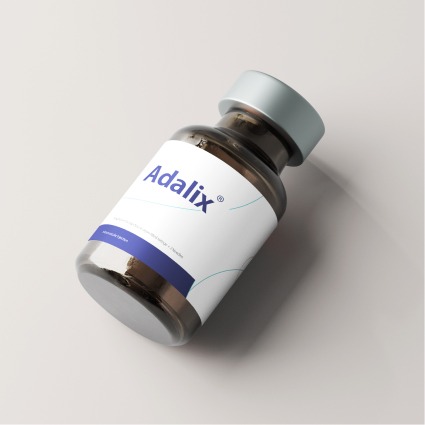Introduction
In recent years, artificial intelligence (AI) has significantly impacted various sectors, including healthcare. Specifically, AI’s role in cancer treatment has been transformative, offering new possibilities for diagnosis, treatment, and patient care. This article delves into the latest advancements in AI in cancer treatment, exploring its achievements, challenges, and prospects. With an emphasis on 2023 developments, we examine how AI is revolutionizing oncology, making strides in precision medicine, and improving patient outcomes. This exploration includes insights from experts in the field, highlighting cutting-edge technologies and their implications for cancer care.
Advancements in AI-Driven Cancer Immunotherapy
2023 has seen significant progress in AI applications in cancer immunotherapy. Dr. Philip D. Greenberg, AACR President-Elect, underscores the expansion in gene editing, epigenetics, and medicinal chemistry, enabling researchers to target previously ‘undruggable’ cancer proteins. AI’s role in designing therapies that synergistically target different cellular pathways is noteworthy. Moreover, the advancement in engineered cell therapies is remarkable, allowing the modification of cells to enhance their function, survival, and specificity in targeting cancer. These developments highlight the potential of AI in creating potent immune responses against cancer, offering new hope in treating solid tumors and understanding tumor microenvironments.
Precision Medicine and AI
AI is revolutionizing precision medicine by integrating extensive multi-omics data with cutting-edge computing and deep-learning strategies. Its applications span cancer detection, screening, diagnosis, classification, and even drug discovery. AI’s role in biomarker assessment is pivotal, aiding in both prognosis and treatment prediction. This sophisticated integration of AI enables more personalized cancer treatment approaches, allowing therapies to be tailored to the unique genetic and molecular profile of each patient. Consequently, this leads to enhanced treatment efficacy and more precise targeting of cancerous cells, minimizing side effects and maximizing therapeutic benefits. AI’s ability to handle vast datasets and complex analyses positions it as a critical tool in advancing precision oncology, making it instrumental in the future of cancer treatment and patient care.
Cancer Diagnostics and AI
In 2023, the impact of AI on cancer diagnostics has been monumental. The FDA’s approval of AI-based devices has markedly influenced cancer diagnostics, particularly in the areas of breast, lung, and prostate cancers. These advancements have not only enhanced the accuracy and efficiency of diagnostic procedures but have also revolutionized the approach toward personalized treatment plans. The integration of AI in diagnostics means more than just technological advancement; it signifies a paradigm shift in cancer care. By enabling early detection and accurate identification of cancer types, AI opens the door to precisely tailored treatment strategies. This evolution in diagnostics is a testament to AI’s potential to revolutionize cancer care, shifting the focus towards early intervention and ensuring more effective, patient-specific therapeutic interventions. These developments hold promise for significantly improving patient outcomes and ushering in a new era of precision oncology.
AI in Comprehensive Cancer Patient Management
AI’s potential in cancer treatment is broadening, encompassing the integration of diverse data from multi-omics approaches to provide a comprehensive view of cancer patient management. This integration is critical in precision oncology, enabling the effective management of vast datasets from DNA and RNA sequencing. Challenges such as the need for accurate health data repositories for informed clinical decision-making do persist. However, the promise of AI in enhancing cancer patient management through personalized medicine is undiminished. AI’s capability to analyze and interpret complex biological data is pivotal for the development of targeted treatment plans, making it a key focus area for future advancements in cancer care. This emphasizes the growing significance of AI in shaping the future of oncology, offering tailored solutions and improved outcomes for patients.
Novel AI Models for Predicting Cancer Outcomes
A significant breakthrough in 2023 is the development of novel AI models, such as Ceograph, for predicting cancer outcomes. These models analyze the spatial arrangement of cells in tissue samples, providing insights beyond traditional pathology. Ceograph has been effective in differentiating cancer subtypes, predicting the progression of precancerous lesions, and identifying patients likely to respond to specific medications. Such AI tools are revolutionizing medical care by improving the accuracy of pathology analyses and enabling targeted preventive measures and optimized treatment selection for individual patients.
The Future of AI in Cancer Treatment
Looking ahead, AI is poised to play an even more significant role in cancer treatment. With advancements in AI algorithms and computational power, we can expect more personalized and effective treatment strategies. The future of AI in cancer treatment lies in its ability to handle complex data, improve diagnostic accuracy, and tailor treatments to individual patient needs. These developments will likely lead to better patient outcomes, reduced treatment side effects, and overall improvements in cancer care.
Opal Bio Pharma (OBP) and AI in Cancer Treatment
In the context of these advancements, Opal Bio Pharma (OBP), Oman’s first biopharmaceutical company, is making strides in cancer therapy and treatment methodologies. By developing vaccines and biosimilar medicines, OBP is contributing to the global fight against cancer. OBP’s commitment to supplying Central and Eastern Europe with innovative treatments highlights its role in raising Oman’s profile in the medical industry. The integration of AI in cancer treatment strategies by companies like OBP is crucial for advancing cancer care and ensuring access to cutting-edge therapies across different regions.
Summary
2023 has been a pivotal year for AI in cancer treatment, marked by significant advancements in immunotherapy, precision medicine, diagnostics, and patient management. Innovations like engineered cell therapies, AI-driven diagnostic devices, and novel predictive models like Ceograph demonstrate AI’s transformative impact on oncology. As we look to the future, AI’s role in cancer treatment is set to expand, offering more personalized and effective solutions. Opal Bio Pharma’s efforts in cancer therapy and its ambition to elevate Oman’s presence in the medical industry align with these global trends. The ongoing developments in AI and cancer treatment promise a new era of precision oncology, improved patient outcomes, and enhanced quality of life for cancer patients.

